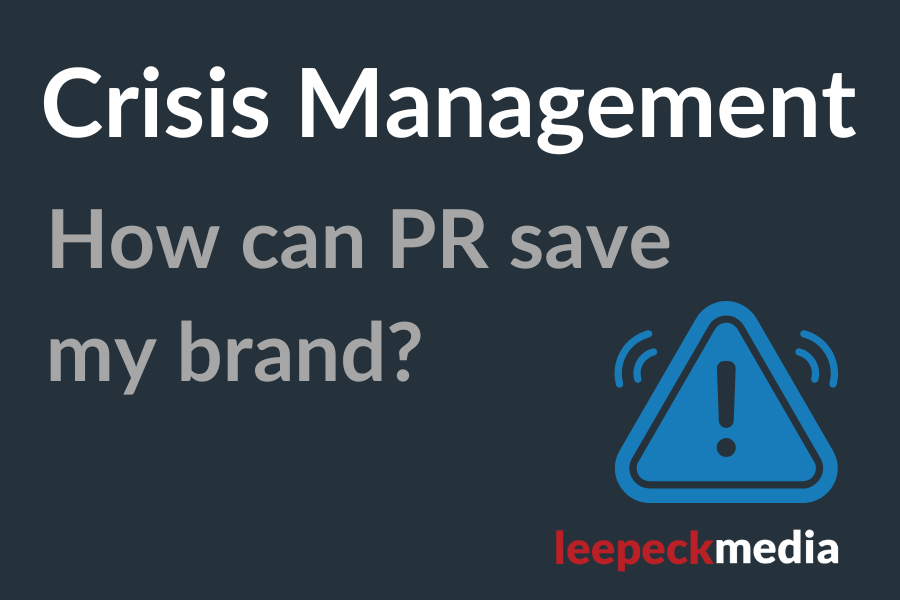In today’s fast-paced digital world, a crisis can escalate rapidly – and how your business responds can make the difference between a temporary setback and a long-term disaster. Effective crisis management is essential, and a skilled PR strategy can transform even the toughest situations into opportunities for growth and renewed trust.
Here are our 5 key tips for navigating a PR crisis and turning it into an opportunity:
1. Act quickly, but think carefully
Time is of the essence in a crisis, but so is precision. As soon as an issue arises, assess the situation carefully. Gather all the facts before taking action to ensure your response is accurate and appropriate. A rushed statement that is not thoroughly checked out could only add to your problems, so take the extra time to get things right.
2. Acknowledge the issue
Transparency is key in crisis management and ignoring or downplaying a problem could make things worse in the long run. We have dealt with situations where companies have decided to ignore a relatively minor issue, only for it to escalate once the accusations of dishonesty and evasion started to set in.
The best thing to do is acknowledge the issue early on and take the right action. This could mean a genuine apology or simply a statement acknowledging what has happened can go a long way in restoring public trust.
3. Gather and brief
You will need to make sure you have an appropriate crisis response team in place, as well as a strategy as to how you plan to tackle this crisis. It is always a recommendation of ours to have this in place anyway as part of your business’ MO so that you are in a really good place to act swiftly and effectively.
In the event of a crisis, your response team should include representatives from PR, legal, operations, and senior management. Regular training can help too, plus, it’s a good idea to make sure everyone has basic media training, in case they are called up to interview.
4. Communicate and engage
In relation to the above, you need to make sure you are communicating. It is essential – and that applies to any online or offline platforms, including newspapers, social media or even review sites like Google or Trip Advisor. Monitor comments and questions across platforms and respond promptly to show you’re listening.
When responding, make sure you avoid becoming defensive; instead, aim to engage in constructive dialogue that demonstrates your commitment to addressing concerns using neutral language. Often, companies engage a third party to do this for them, to help aid the neutrality of response.
5. Recovering from crisis
While a crisis is never ideal, it can be an opportunity to demonstrate your brand’s values, resilience, and commitment to improvement. For instance, if the crisis highlights a shortcoming, use it as a springboard for change. Showcasing how you’ve learnt from the situation can strengthen your credibility.
Once the crisis has subsided, conduct a thorough review to identify what went well and where improvements are needed. Analyse audience feedback and media coverage to gain insights into how your response was perceived. Use these findings to refine your crisis management plan for the future.
How can a PR agency help me with Crisis Communications?
Managing a crisis is a complex process and this is where a skilled PR agency can make all the difference. From crafting timely and effective statements to managing media relations and shaping public perception, an agency can help your brand navigate the storm and emerge stronger.
Need help preparing for the unexpected? Leepeckmedia can guide you through crisis communications planning, training and strategy. Let’s get started – email us at info@leepeckmedia.com.

